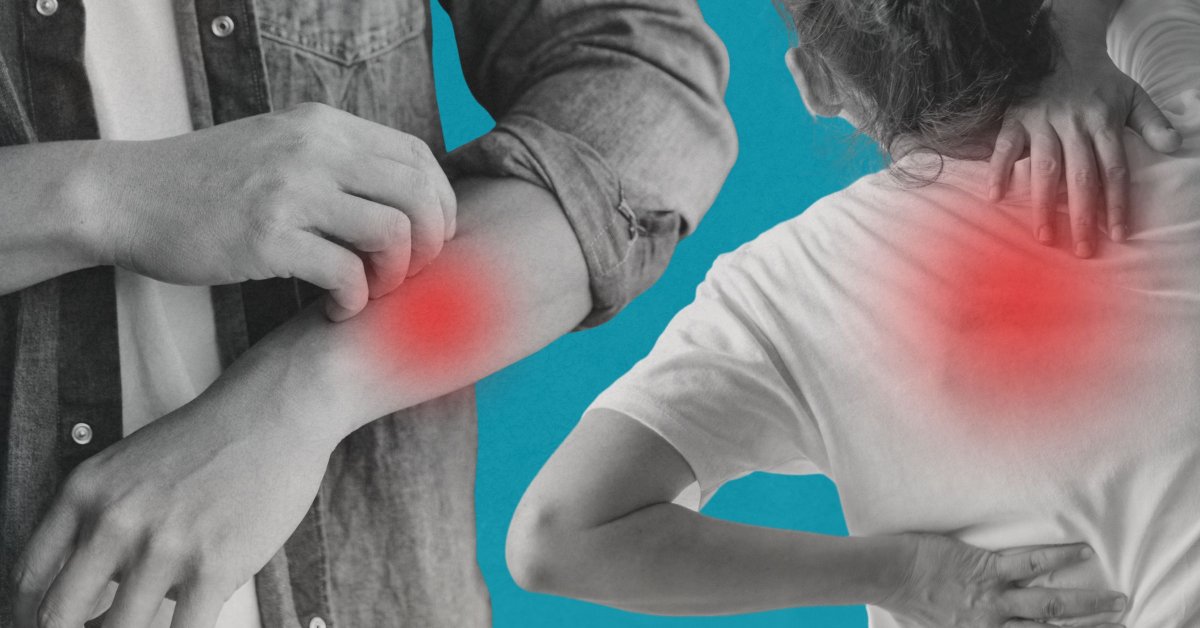10 Emergency Symptoms: When To Go To The ER

Welcome to your ultimate source for breaking news, trending updates, and in-depth stories from around the world. Whether it's politics, technology, entertainment, sports, or lifestyle, we bring you real-time updates that keep you informed and ahead of the curve.
Our team works tirelessly to ensure you never miss a moment. From the latest developments in global events to the most talked-about topics on social media, our news platform is designed to deliver accurate and timely information, all in one place.
Stay in the know and join thousands of readers who trust us for reliable, up-to-date content. Explore our expertly curated articles and dive deeper into the stories that matter to you. Visit Best Website now and be part of the conversation. Don't miss out on the headlines that shape our world!
Table of Contents
10 Emergency Symptoms: When to Go to the ER
Feeling unwell? Knowing when to seek emergency medical care can be the difference between a minor inconvenience and a life-threatening situation. While a headache might warrant a visit to your doctor, some symptoms demand immediate attention at the Emergency Room (ER). This article outlines ten emergency symptoms that require immediate medical intervention. Don't delay – your health is paramount.
Understanding Emergency Severity
Before diving into the specific symptoms, it's crucial to understand the urgency of seeking emergency care. Minor ailments like a common cold or mild allergy symptoms generally don't require a trip to the ER. However, if you experience any of the symptoms detailed below, immediate medical attention is vital. Delaying treatment can lead to serious complications or even death.
Top 10 Emergency Symptoms Requiring Immediate ER Visit:
-
Severe Chest Pain or Pressure: This is a classic sign of a heart attack. Other accompanying symptoms may include shortness of breath, sweating, nausea, and lightheadedness. Do not delay: Call emergency services immediately.
-
Sudden Difficulty Breathing: Trouble breathing, particularly if it's sudden or accompanied by wheezing, chest tightness, or a bluish tint to your lips or fingertips, warrants immediate ER attention. This could indicate a number of serious conditions, including asthma attack, pneumonia, or pulmonary embolism.
-
Severe Allergic Reaction (Anaphylaxis): Symptoms include difficulty breathing, swelling of the face, lips, or tongue, hives, dizziness, and a rapid heartbeat. Anaphylaxis is a life-threatening condition requiring immediate medical intervention, often with epinephrine injection.
-
Severe Head Injury: Loss of consciousness, persistent headache, vomiting, confusion, seizures, or unequal pupil size after a head injury necessitates immediate evaluation to rule out brain bleeding or other serious complications.
-
Severe Bleeding That Won't Stop: Uncontrollable bleeding from a wound, especially if it's deep or spurting, requires immediate medical attention to prevent significant blood loss. Apply direct pressure while waiting for emergency services.
-
Sudden, Severe Pain (Abdominal or Otherwise): Intense, sharp pain, particularly in the abdomen, could indicate appendicitis, a ruptured ovarian cyst, kidney stones, or other serious conditions. Don't try to self-diagnose; seek immediate medical help.
-
Stroke Symptoms: Sudden weakness or numbness on one side of the body, confusion, trouble speaking or understanding speech, difficulty walking, and severe headache are classic signs of a stroke. Time is brain; call emergency services immediately – fast treatment can significantly improve outcomes. Learn more about stroke symptoms and FAST signs [link to reliable external source on stroke].
-
Severe Burns: Deep, large burns, or burns involving the face, hands, feet, or genitals require immediate medical attention for proper wound care and prevention of infection.
-
Seizures: If someone experiences a prolonged seizure (lasting more than 5 minutes), repeated seizures, or a seizure followed by an altered mental state, immediate medical attention is crucial.
-
Severe or Persistent Vomiting or Diarrhea: While occasional vomiting or diarrhea is common, persistent vomiting or diarrhea leading to severe dehydration (indicated by dizziness, lightheadedness, or decreased urination) requires immediate medical attention.
When in Doubt, Seek Medical Attention
This list isn't exhaustive. If you experience any symptom that significantly worries you or causes you significant discomfort, don't hesitate to seek emergency medical care. Your health is your most valuable asset. Early intervention often leads to better outcomes.
Call 911 or your local emergency number immediately if you experience any of these severe symptoms. Don't wait; act fast. Your life may depend on it.

Thank you for visiting our website, your trusted source for the latest updates and in-depth coverage on 10 Emergency Symptoms: When To Go To The ER. We're committed to keeping you informed with timely and accurate information to meet your curiosity and needs.
If you have any questions, suggestions, or feedback, we'd love to hear from you. Your insights are valuable to us and help us improve to serve you better. Feel free to reach out through our contact page.
Don't forget to bookmark our website and check back regularly for the latest headlines and trending topics. See you next time, and thank you for being part of our growing community!
Featured Posts
-
 Julia Garner And Josh Brolin Face Off In Zach Creggers Chilling Weapons
Aug 07, 2025
Julia Garner And Josh Brolin Face Off In Zach Creggers Chilling Weapons
Aug 07, 2025 -
 No 2024 Run Trump Casts Doubt On Presidential Future
Aug 07, 2025
No 2024 Run Trump Casts Doubt On Presidential Future
Aug 07, 2025 -
 Din Thomass Khamzat Chimaev Comments A Point By Point Rebuttal
Aug 07, 2025
Din Thomass Khamzat Chimaev Comments A Point By Point Rebuttal
Aug 07, 2025 -
 July 2025 Your Guide To The Hottest New Tv Shows
Aug 07, 2025
July 2025 Your Guide To The Hottest New Tv Shows
Aug 07, 2025 -
 Weapons Humor And Chaos A Small Towns Real Life Reflection
Aug 07, 2025
Weapons Humor And Chaos A Small Towns Real Life Reflection
Aug 07, 2025
Latest Posts
-
 Rodgers Delivers Brutal Truth To Steelers Receiver
Aug 07, 2025
Rodgers Delivers Brutal Truth To Steelers Receiver
Aug 07, 2025 -
 How Ray Romanos Everybody Loves Raymond Changed Kevin Jamess Approach To Comedy
Aug 07, 2025
How Ray Romanos Everybody Loves Raymond Changed Kevin Jamess Approach To Comedy
Aug 07, 2025 -
 Steelers Wideout Faces Rodgers Unfiltered Honesty
Aug 07, 2025
Steelers Wideout Faces Rodgers Unfiltered Honesty
Aug 07, 2025 -
 From Laughter To Panic The Unexpected Fallout Of Weapons In A Small Town
Aug 07, 2025
From Laughter To Panic The Unexpected Fallout Of Weapons In A Small Town
Aug 07, 2025 -
 July 2025 Your Guide To The Hottest New Tv Shows
Aug 07, 2025
July 2025 Your Guide To The Hottest New Tv Shows
Aug 07, 2025
